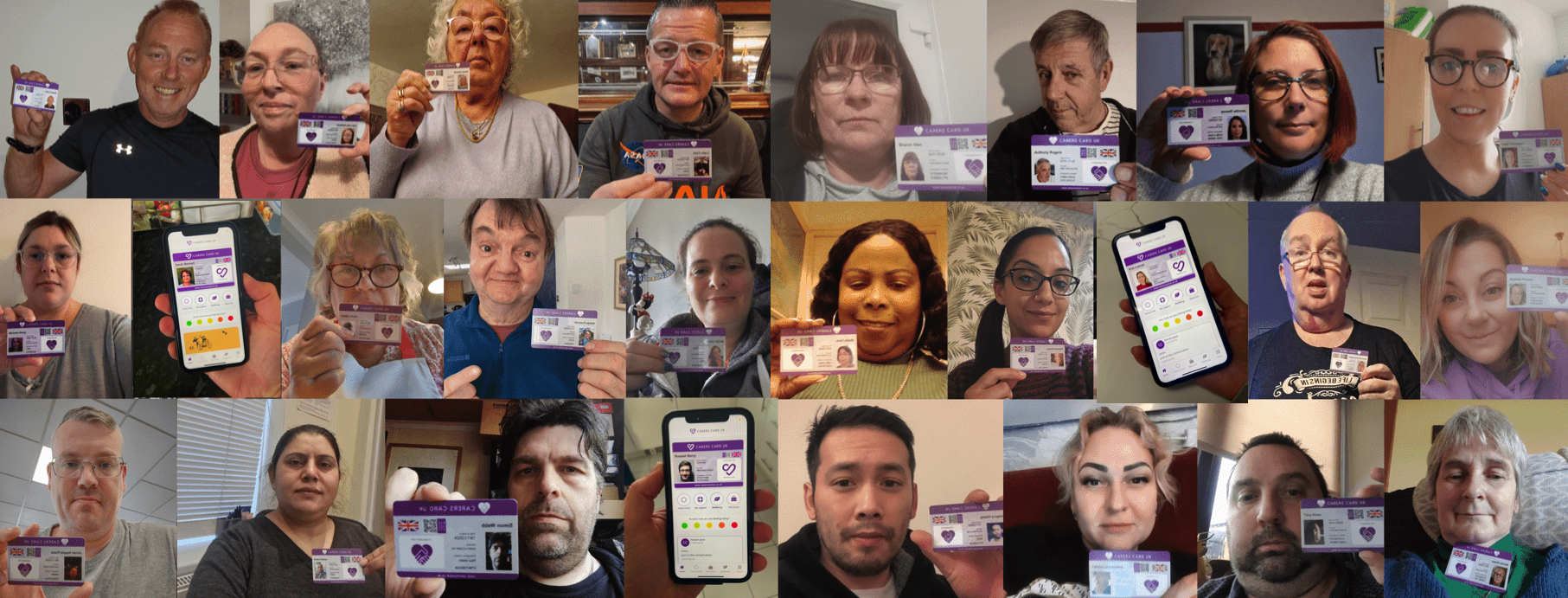Unpaid carers
Your quick guide to unpaid carers

Unpaid carers
Unpaid carers are individuals who provide care and support to family members, friends, or neighbours without financial compensation. These carers often assist with daily activities such as bathing, dressing, managing medications, and providing emotional support. Unlike professional caregivers, unpaid carers do not receive formal training or payment for their efforts, relying on their dedication and personal experience to fulfil their caregiving roles.
Growing in number
In the UK, the significance of unpaid carers is substantial. According to Carers UK, there are an estimated 6.5 million unpaid carers across the country, equating to about one in eight adults. This number is expected to rise as the population ages and the demand for care increases. Many unpaid carers juggle their responsibilities with work, education, or other personal commitments, making their contribution even more commendable.
Unsung heroes
Alleviating the burden on the healthcare system
The role of unpaid carers is crucial to the fabric of society. They provide essential care that enables individuals with chronic illnesses, disabilities, or age-related conditions to live with dignity and independence in their own homes. This support helps to alleviate the burden on the formal healthcare system, saving the UK economy billions of pounds annually. Furthermore, the emotional and psychological support provided by unpaid carers enhances the well-being and quality of life of those they care for.
Unpaid carers are often the unsung heroes of the healthcare system. Their dedication and selflessness not only sustain the well-being of the individuals they care for but also contribute significantly to the broader community. Recognising and supporting unpaid carers is vital to ensuring their continued ability to provide this indispensable care.
Challenges faced by unpaid carers
Unpaid carers encounter numerous emotional and physical challenges, including stress, burnout, and health issues from the demanding nature of their caregiving roles. Financial difficulties often arise due to the inability to maintain regular employment, compounded by the extra costs of care-related expenses.
Social isolation is a common issue, as carers may have limited time and energy for personal relationships and social activities, leading to feelings of loneliness. Additionally, a lack of support and resources can exacerbate these challenges. Many carers struggle to find adequate respite care, counselling, and practical assistance, leaving them to navigate their responsibilities largely on their own. Addressing these challenges is crucial to supporting unpaid carers and ensuring their well-being.
Support services for unpaid carers
Unpaid carers in the UK have access to various support services to help them manage their responsibilities. Charities and organisations like CarersCardUK, Carers UK and Carers Trust offer essential resources, including information, advocacy, and emotional support. These organisations also provide practical assistance, such as respite care and financial advice.
Local authority support services are available to assess carers' needs and offer tailored support plans. These services might include access to respite care, carer training, and financial assistance.
Additionally, carer support groups and networks offer invaluable peer support. These groups provide a platform for carers to share experiences, seek advice, and build a supportive community, helping to alleviate feelings of isolation and stress. By leveraging these resources, unpaid carers can find the support they need to sustain their caregiving roles effectively.
Financial support and benefits
Unpaid carers in the UK can access various financial supports to ease their burdens. Carer's Allowance is a primary benefit, providing a weekly payment to those who care for someone and meet certain eligibility criteria.
In addition to Carer's Allowance, carers may qualify for other financial benefits such as Carer Premium, an extra payment added to means-tested benefits like Income Support, and Carer's Credit, which helps fill gaps in National Insurance contributions to protect future State Pension entitlements.
To apply for financial support, carers can complete applications online through the government website or by submitting paper forms. It's essential to provide accurate details about their caregiving responsibilities and the care recipient's condition to ensure eligibility and proper assessment. Accessing these benefits can provide crucial financial relief and stability for unpaid carers.

Wellbeing & tips
Health and Well-being Resources
Maintaining health and well-being is vital for unpaid carers. Mental health resources, such as counselling services and helplines provided by organisations like Mind and Samaritans, offer emotional support and coping strategies. Online forums and support groups also provide a space for carers to share experiences and seek advice.
To maintain physical health, carers should prioritise regular exercise, a balanced diet, and sufficient sleep. Simple practices like daily walks, stretching exercises, and mindfulness techniques can significantly improve physical and mental well-being.
Respite care options, including short-term residential care and in-home respite services, provide carers with essential breaks. Accessing respite care typically involves contacting local authority social services for an assessment or reaching out to charities like Carers Trust, which can offer guidance and assistance. Utilising these resources helps carers sustain their health and continue providing effective care.
Practical Tips for Unpaid Carers
Effective time management and organisation are crucial for unpaid carers. Using tools like calendars, to-do lists, and reminder apps can help prioritise tasks and ensure nothing is overlooked. Setting realistic goals and breaking tasks into manageable steps can reduce stress.
Balancing caring responsibilities with work or education requires flexibility and communication. Discussing flexible working hours with employers or seeking support from educational institutions can help manage dual roles. Utilising respite care and delegating tasks to other family members can also provide necessary relief.
Self-care strategies are essential for maintaining well-being. Regular breaks, pursuing hobbies, and staying connected with friends can prevent burnout. Practicing mindfulness, seeking support from carer groups, and prioritising sleep, nutrition, and exercise are key to sustaining physical and mental health. Implementing these practical tips helps unpaid carers manage their responsibilities more effectively and maintain their own well-being.
Carers Card
"The UK's No1 carers card"
Our national carers card helps support, recognise and reward carers
Your card provides reassurance by including your emergency contact details, whilst unlocking discounts, a wellbeing hub, our Carer Circle tool, and so much more through our app.
Available to all unpaid and paid carers.

Proud to be supporting

